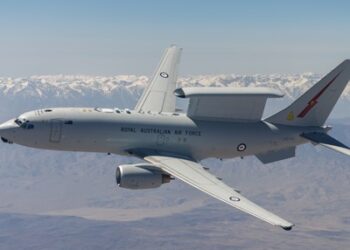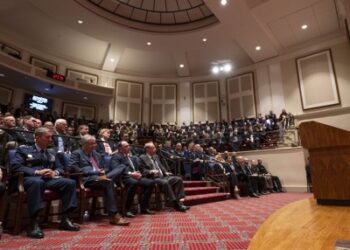Recent policy changes at the Pentagon in 2023 have significantly impacted the defense contracting landscape, including cuts to civilian workforce and contracts, as well as a new mandate to expedite software purchases. Booz Allen Hamilton, one of the ten consulting firms targeted for contract reviews amid these changes, plans to adapt proactively to this evolving environment.
Andrea Inserra, president of Booz Allen Hamilton’s global defense business, has emphasized the need for rapid adaptation. She stated, “It was a big pivot… everything is changing…and there’s goodness to that.” Inserra, who was appointed in April, has engaged in client meetings across the Defense Department to address pressing issues, especially in dual-use technology development.
In the latest financial report for Q1 2026, Booz Allen Hamilton noted 7% growth in its defense business and 6% in intelligence services compared to the previous year. The company has also strengthened its venture investment to $300 million to support technological developments.
When discussing Booz Allen’s co-investment approach, Inserra cited the Modular Detachment Kit (MDK), which facilitates communication for the U.S. Air Force in Europe and Africa. Following the initial deployment of 12 units, Booz Allen recently secured a contract to produce 70 more ruggedized units. This shift towards rapid prototyping and deployment highlights the urgency reflected in current contracts.
Looking ahead, Inserra mentioned plans for deploying the additional units within the next 18 months and continued investments through Booz Allen Ventures, which has expanded from an initial $100 million to a total of $300 million. The focus areas for investment include artificial intelligence, cybersecurity, space, and warfighting technology.
One significant project involves implementing a 5G network in Guam to improve ship maintenance tracking, which has expanded to include approximately 37 ships across the Pacific and Europe. Booz Allen’s strategy includes building internal capabilities while also partnering with firms like Ericsson to drive innovation.
Amid contract reductions in IT, Booz Allen is actively reassessing its strategy within the consulting domain. Inserra stressed that the company’s future lies not in reducing its consulting services but in enhancing them through technological innovation.
The Advana contract, concerning data centralization for the Pentagon, is currently uncertain amid shifts in procurement strategy. However, Inserra remains optimistic about Booz Allen’s foundational role in future projects arising from the Advana experience, highlighting the company’s unmatched expertise in this domain.
Inserra framed Booz Allen Hamilton’s identity as that of a technology builder, actively seeking organic and inorganic avenues to enhance its capabilities. As the defense landscape continues to evolve rapidly, she underscored the necessity of agility in aligning with technological advancements to serve the needs of their clients effectively.
This interview has been edited for length and clarity.













